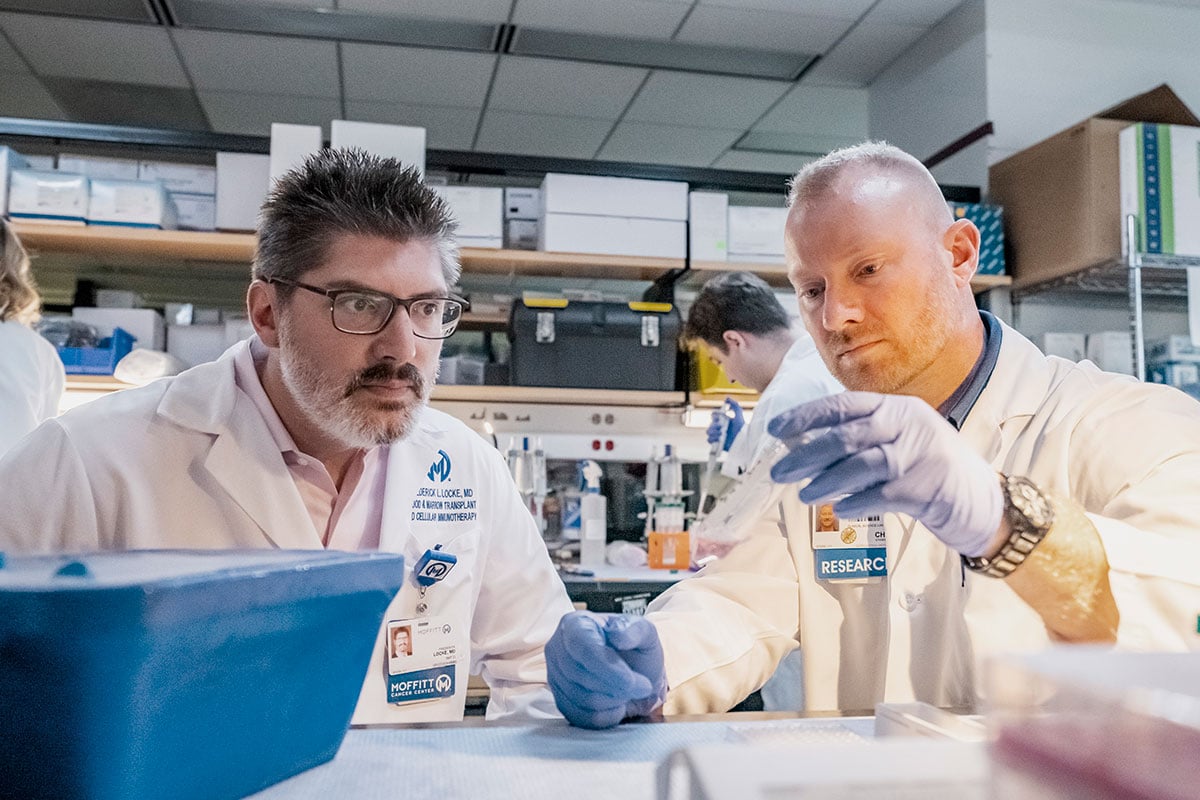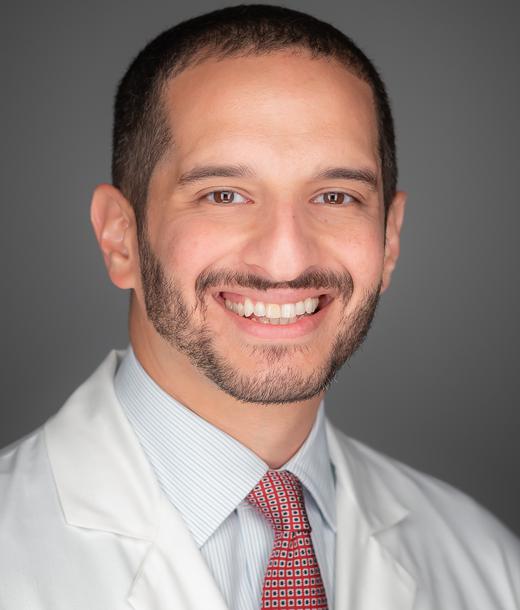Recent FDA Approvals for New Uses of Cellular Therapies
Recent advancements in cellular therapies, such as CAR T and TILs, have led to new FDA approvals for expanded uses, significantly broadening the therapeutic landscape for patients with hematologic malignancies.
Cell therapies harness and enhance the body's immune system to target and destroy cancer cells more effectively. While CAR T-cell therapies involve genetic modification of T cells to enhance their cancer-fighting capabilities, TIL therapies utilize naturally occurring T cells within the tumor, which are expanded and activated to fight cancer.
These approvals offer new hope for patients and highlight the rapid evolution and impact of cell therapies in oncology. The Blood and Marrow Transplant and Cellular Immunotherapy (BMT CI) Program at Moffitt Cancer Center is the largest and most active program of its kind in the Southeast, our cancer experts utilize the leading-edge treatments, ensuring patients have access to the best care provided by a multidisciplinary team of experts.

Here are four cell therapies offered at Moffitt that have recently seen expanded FDA approvals.
1. Liso-cel (Lisocabtagene Maraleucel) - CAR T
The FDA approved liso-cel (Breyanzi) on February 5, 2021, to treat adult patients with relapsed or refractory large B-cell lymphoma after undergoing two or more systemic therapy lines. Liso-cel has been used to treat patients with diffuse large B-cell lymphoma (DLBCL), high-grade B-cell lymphoma, and DLBCL arising from follicular lymphoma.
In March 2024, the FDA expanded the use of liso-cel by newly approving it for the treatment of adult patients with relapsed or refractory chronic lymphocytic leukemia (CLL) and small lymphocytic lymphoma (SLL) who have previously been treated with a BTK inhibitor and a BCL-2 inhibitor.
Moffitt has extensive experience in cellular therapy treatments, including axi-cel, another autologous anti-CD19 chimeric antigen receptor T-cell therapy. The expansion of the use of liso-cel immune therapy, which is also an autologous anti-CD19, to now include patients with CLL and SLL gives the Moffitt team more resources to create customized treatment plans for every patient.
2. Cilta-cel (Ciltacabtagene Autoleucel) - CAR T
Since February 2022, cilta-cel has been approved and used to treat adult patients with relapsed or refractory multiple myeloma after four or more prior lines of therapy, including a proteasome inhibitor, an immunomodulatory agent, and an anti-CD38 monoclonal antibody.
Based on the promising results of the CARTITUDE-4 clinical trial, which showed significant efficacy in earlier lines of treatment, the drug’s indication was expanded in April of 2024.
Cilta-cel is now approved for use in adult patients with relapsed and lenalidomide-refractory multiple myeloma who have received one previous line of treatment.
CAR T-cell therapy, such as cilta-cel, has proven to lower the risk of the combination of disease progression and death than the standard of care for relapsed or refractory multiple myeloma patients. This recent approval allows patients and their care teams to consider CAR T-cell therapy as an earlier treatment option, which can improve and extend quality of life and potentially help save millions in treatment costs.
3. Ide-cel (Idecabtagene Vicleucel) - CAR T
Another therapy that has seen expanded approval for earlier use is ide-cel. It was initially approved on March 26, 2021, for the treatment of adult patients with relapsed or refractory multiple myeloma after at least four prior lines of therapy. In March 2024, the FDA expanded its approval to include use for multiple myeloma patients exposed to at least two lines of therapy.
By revising both ide-cel and cilta-cel indications to be used earlier in the course of the disease, patients can access this innovative treatment without having to try several other treatment courses first. This offers renewed hope from the onset of treatment.
4. Lifileucel (Amtagvi ) - TILs
The approval of lifileucel, a tumor-derived autologous T-cell therapy, marks the first for a tumor-derived T-cell immunotherapy. This tumor-infiltrating lymphocyte therapy is the first and only cellular therapy to be approved for metastatic melanoma and the only individualized T-cell therapy approved for solid tumor cancer.
Lifileucel was approved on February 16, 2024, to treat adult patients with unresectable or metastatic melanoma. This approval specifically targets patients previously treated with other therapies, such as PD-1 antibody-based treatments, BRAF inhibitor treatments, or MEK inhibitor treatments.
Moffitt has already begun leveraging this revolutionary immunotherapy, recently treating its first patient with the newly approved solid tumor therapy.
Ongoing Advancements in Cell Therapies
Cell therapies continue to advance and evolve to expand their use and better treat hematologic malignancies. By providing more treatment options and enhanced safety information, patients can make more informed and confident decisions about their care.
Moffitt offers all the above treatments for patients with certain blood cancers including lymphoma, myeloma, and leukemia, and solid cancers, such as melanoma or small-cell lung cancer. Other potential treatment options include chemotherapy, surgery, radiation and more. Each patient has a dedicated team of multidisciplinary experts who meet weekly as a tumor board to develop and manage care plans customized to each patient based on cancer type, genetics, biomarkers, treatment response, and more.
Moffitt remains innovative, learning about new FDA drug approvals and efficiently integrating their new or expanded uses into our program to create stronger, more personalized malignant hematology services. Additionally, we are innovating new immune therapies, as well as leading and enrolling patients in novel clinical trials.
If you’d like to refer a patient to Moffitt for cellular therapy treatment, complete our online form or contact a physician liaison for assistance. As part of our efforts to shorten referral times as much as possible, online referrals are typically responded to within 24 - 48 hours.

